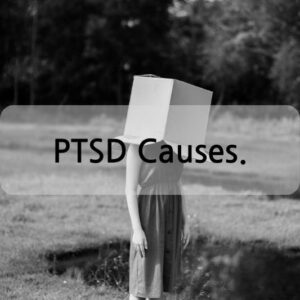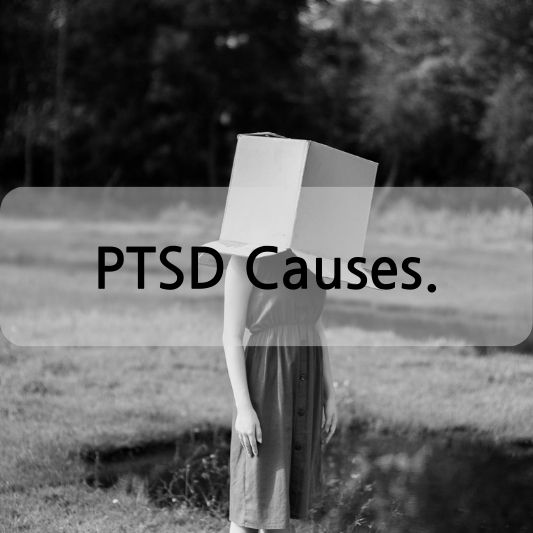Post-Traumatic Stress Disorder (PTSD) is a complex mental health condition that can profoundly affect individuals who have experienced traumatic events. Understanding the causes of PTSD is crucial for recognizing the triggers and providing effective support and treatment for those affected.

Introduction to PTSD
PTSD is a psychiatric disorder that may develop after a person experiences or witnesses a traumatic event. These events can range from natural disasters and accidents to combat exposure, assault, or childhood abuse. Individuals with PTSD often experience intense and disturbing thoughts and feelings related to their trauma long after the event has occurred.
Understanding the Causes of PTSD
Traumatic Events
The primary cause of PTSD is exposure to a traumatic event that threatens the safety or well-being of an individual. Such events can include physical or sexual assault, military combat, serious accidents, or natural disasters. The severity and duration of the trauma can significantly impact the development of PTSD symptoms.
Biological Factors
Biological factors also play a role in the development of PTSD. Studies have shown that individuals with certain genetic predispositions may be more susceptible to developing the disorder. Additionally, differences in brain structure and chemistry, particularly in regions associated with stress response and fear regulation, can contribute to the onset of PTSD symptoms.
Psychological Factors
Psychological factors, such as previous exposure to trauma, childhood experiences, and coping mechanisms, can influence an individual’s susceptibility to PTSD. Those with a history of prior trauma or pre-existing mental health conditions may be more vulnerable to developing PTSD following a traumatic event.
Impact of PTSD Causes
PTSD can have a profound impact on various aspects of an individual’s life, including their emotional well-being, behavior, and physical health.
Emotional Distress
Individuals with PTSD often experience persistent and intrusive memories of the traumatic event, accompanied by intense emotional distress, fear, or anxiety. They may also struggle with feelings of guilt, shame, or anger related to the trauma.
Behavioral Changes
PTSD can lead to significant changes in behavior and interpersonal relationships. Affected individuals may avoid situations or places that remind them of the trauma, withdraw from social activities, or have difficulty trusting others. Substance abuse and self-destructive behaviors are also common coping mechanisms for managing PTSD symptoms.
Physical Symptoms
PTSD can manifest in various physical symptoms, including headaches, gastrointestinal problems, sleep disturbances, and chronic pain. These physical symptoms often coexist with the psychological symptoms of PTSD and can further exacerbate the individual’s distress and impairment in daily functioning.
Risk Factors for Developing PTSD
While exposure to trauma is a primary risk factor for PTSD, certain individual and environmental factors can increase susceptibility to the disorder.
Previous Trauma
Individuals who have experienced multiple traumatic events throughout their lives may be at increased risk for developing PTSD. The cumulative effect of trauma can heighten emotional reactivity and vulnerability to stressors.
Genetic Predisposition
Genetic factors can influence an individual’s risk of developing PTSD. Certain genetic variations related to the regulation of stress hormones and neurotransmitters may contribute to the development and severity of PTSD symptoms.
Lack of Social Support
Social support networks play a crucial role in coping with trauma and mitigating the risk of developing PTSD. Individuals with limited social support or unstable interpersonal relationships may struggle to process their trauma and recover from its effects, increasing their vulnerability to PTSD.
Coping Mechanisms and Treatment Options
Effective treatment for PTSD often involves a combination of therapy, medication, and support from mental health professionals and loved ones.
Therapy
Cognitive-behavioral therapy (CBT) and exposure therapy are commonly used to help individuals process and cope with traumatic memories and emotions. These therapeutic approaches aim to identify and challenge negative thought patterns, develop coping skills, and gradually expose individuals to the triggers of their PTSD in a safe and controlled manner.
Medication
Antidepressant and anti-anxiety medications may be prescribed to alleviate symptoms of depression, anxiety, and insomnia associated with PTSD. While medication can help manage certain symptoms, it is typically used in conjunction with therapy for optimal treatment outcomes.
Support Groups
Participating in support groups or peer-led organizations can provide valuable emotional support, validation, and coping strategies for individuals with PTSD. Connecting with others who have experienced similar traumas can foster a sense of belonging and understanding, reducing feelings of isolation and stigma associated with the disorder.
Conclusion
In conclusion, PTSD is a complex and debilitating condition that can result from exposure to traumatic events. Understanding the causes and risk factors for PTSD is essential for early identification, intervention, and treatment. By addressing the underlying triggers and providing comprehensive support, individuals affected by PTSD can embark on a path towards healing and recovery.
Frequently Asked Questions (FAQs)
Can PTSD develop years after a traumatic event?
PTSD symptoms may not manifest immediately after a traumatic event and can emerge months or even years later.
Are children susceptible to PTSD?
children can develop PTSD following exposure to traumatic events such as abuse, accidents, or natural disasters.
Can PTSD be cured?
While there is no cure for PTSD, effective treatments and coping strategies can help individuals manage symptoms and improve their quality of life.
What role do social support networks play in PTSD recovery?
Social support networks can provide emotional validation, practical assistance, and a sense of belonging, which are crucial for coping with PTSD and promoting recovery.
Is PTSD only diagnosed in veterans?
PTSD can affect anyone who has experienced or witnessed a traumatic event, including civilians, first responders, and survivors of abuse or accidents.
